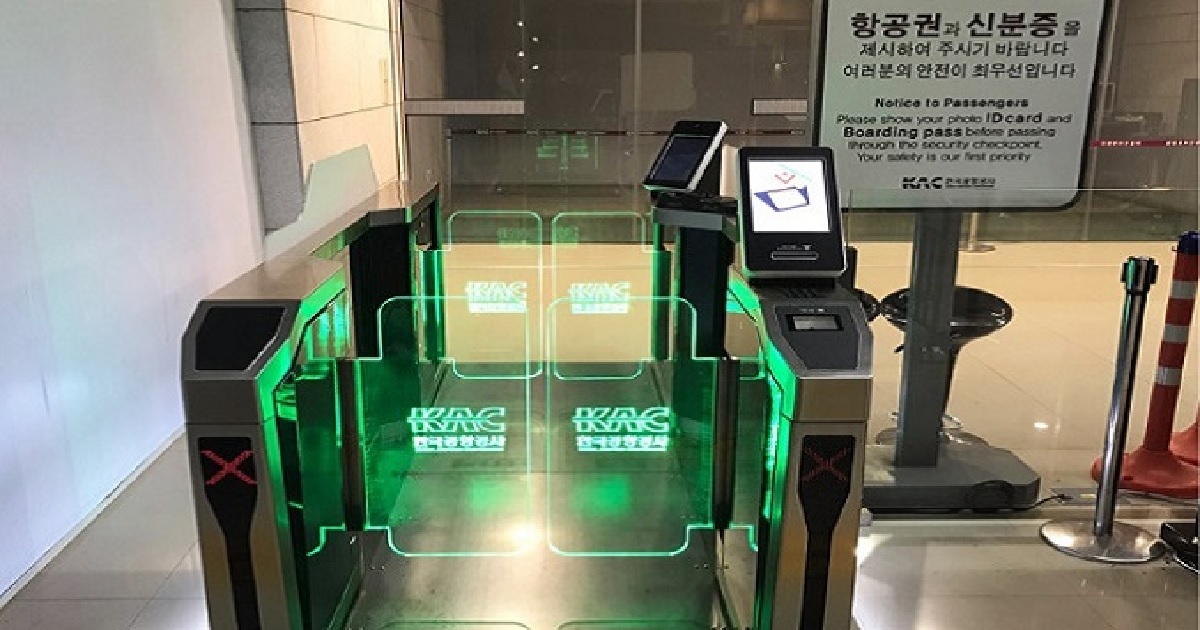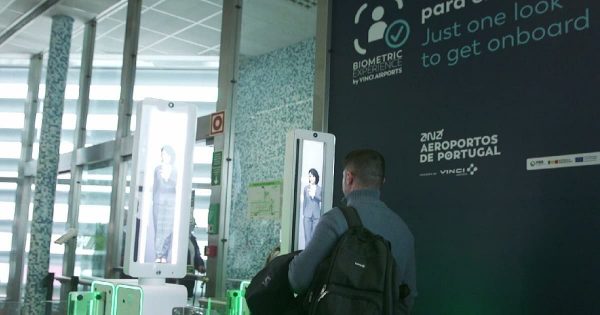South Korea is expanding the use of its palm vein biometric system for domestic flights from 14 airports.
The system allows Korean passengers on domestic flights to use their biometrics as ID, removing the need for a physical ID.
Passengers register their ID, name, phone and palm vein in advance and can then use their palm as ID at the airport to get airside and to board the aircraft.
The biometric boarding system was introduced in 2021 at some airports and passengers had to register their details at the airport.
In the updated system, South Koreans who hold an account at any of nine financial corporations can use the biometric system at all 14 airports run by Korea Airports Corporation (KAC).
They can now register their details at a bank branch of the nine financial companies.
First implementation
Passengers at Korean airports are quite used to using biometrics.
The palm vein system was first used in 2018 to check passengers ID and boarding passes before allowing them airside. That system from Fujitsu started on flights between Gimpo International Airport and Jeju International Airport and is now in use at all 14 airports run by KAC.
Self boarding
In 2021 Gimpo International Airport (GMP) and Jeju International Airport (CJU) started using the palm vein system for self boarding as well.
Results from those airports show the biometric system reduced times from check-in to boarding. KAC says that passengers using the biometric system spent an average of 6 minutes at Gimpo Airport and 5 minutes at Jeju International Airport from check-in to bag drop and security access.
As a result of that success, the biometric system is being expanded for use at all 14 KAC airports.
How it works
Passengers register their palm vein biometrics and mobile phone number at any branch of the nine financial companies.
The biometric details and phone number is then shared with the Korea Airports Corporation to be used to confirm passenger identity during check-in at the 14 airports.
Passengers who register their palm veins will be able to go through from check-in to bag drop and then airside access without having to show any more identification.
The service is only for Korean nationals who hold bank accounts with the financial firms that signed the agreement. More than 6 million South Koreans already use biometrics for financial services.
Future plans for biometrics at KAC airports
KAC is also working on more plans to use more biometrics at its airports. In future, passengers will use palm vein authentication to buy food and use self-service kiosks for various services.
South Korea has 15 passenger airports and KAC runs 14 of them. Seoul Incheon, by far the busiest and most important in the country, is not on the list as it is run by Incheon International Airport Corporation.
N.B. Image credit: Fujitsu







